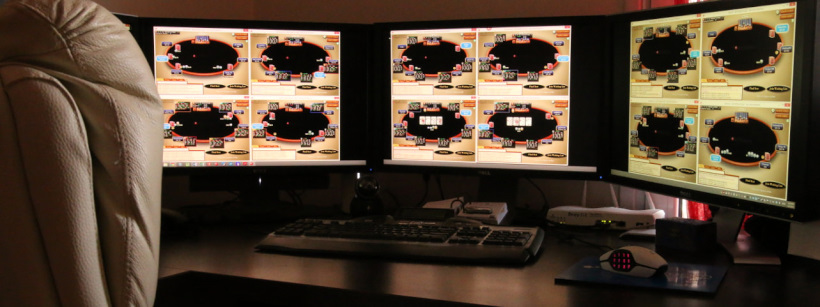
They say that the person who invented poker was really smart, but the one who invented chips was the real genius. Something similar can be said about the inventor of rakeback. Rakeback deals served many purposes throughout the years.
They managed to boost the volume of countless players, establish large affiliate nets, act as a marketing tool etc. The idea of getting some of the money we pay to play poker back in a predictable manner introduced a much-needed element of reliability into the otherwise uncertain reality of a poker grinder. Some players treat rakeback as a nice bonus to their win rate, other's design their careers around it by taking steps to increase their volume and maximize their hourly.

Losing the Edge
According to the principles of training specificity, skill acquisition is largely correlated to a very specific set of training methods that emphasize particular skill, and the overlap that we experience when deviating from those methods usually proves to be very small. To put it in simple terms, even in a seemingly narrow category like hold'em we have some very specific variations, and you won't become an amazing tournament pro by playing in 100bb cash games. You might gain some small amount of insight from one poker format that you can use in another, but for the most part, you're going to get good at the thing you're doing and not much else. Because of that, deciding to grind for rakeback instead of grinding for win rate has some very tangible consequences.
A rakeback grinder might become very good at focusing his or her attention of the above average number of tables for the above average amount of time, but he or she won't maximize the amount of edge gained over other players. A hybrid approach is, of course, possible, but it's also bound to be suboptimal both when it comes to maximizing win-rate and maximizing the hourly earnings. Many players think that they can kill two birds with one stone, by constantly improving their game and optimizing their hourly at the same time. This indeed may be possible for some genetic outliers, but it's not a realistic scenario for most players.
It's also important to point out that the skill acquisition in the areas important for someone optimizing hourly earnings can pose a number of different issues. We tend to overestimate our ability to focus and therefore, increasing both the number of tables that we play and the length of our sessions can lead to severe issues with maintaining our a-game. Some sacrifices when it comes to a game are of course a part of the course when we make the decision to grind for rakeback, but playing on autopilot for hours on end can be absolutely disastrous for most players.

Motivation Issues
There's no way around it, grinding for rakeback can be boring, repetitive and tedious. Dividing our attention over multiple tables and compromising our ability to make optimal decisions is bound to be less engaging than paying close attention to things like table dynamics, history, image and trying to find every possible edge through that. Because of that, some rakeback grinders might find it difficult to remain disciplined and consistent.
Getting stuck in a poker rut is surprisingly easy and not at all fun or productive. Introducing some novelty can prove to be an effective way of fighting the monotony of rakeback grinding. Trying out a different poker room from time to time can spice things up and also make a lot of sense from the hourly standpoint if you rely on the first deposit bonus in your rakeback strategy.
Lastly, let's talk briefly about the trap of risk aversion. The idea of rakeback grinding is often alluring for the risk-averse players. It makes sense if we do some basic arithmetic we can quickly realize that just 3k hands at NL50 with our current rakeback deal guarantees us $50 or rakeback even if we're break even players! The idea of that $50 daily paycheck seems so reliable and calming when compared to the crazy fluctuations is short term poker results. The reality is, unfortunately, a bit more complicated than that. First of all, unless your bankroll is really deep, short term variance can still affect you and cause you to move down stakes. Second, of all, this scenario is somewhat more likely if your aim is to stay 'break even'. A life of a marginal poker winner is a tumultuous one, full of long break even stretches and big swings. Players who look for safety in rakeback often find the exact opposite.
Grinding for rakeback is a viable approach, but it's not a fairytale. You have to remember that emphasizing hourly has an effect on your win rate and you should plan for that. Make sure that you build up slowly, ensure proper levels of poker stimulation and brace your bankroll for impact.

